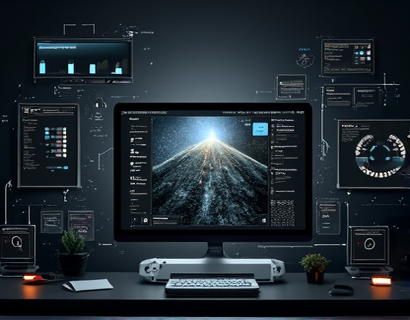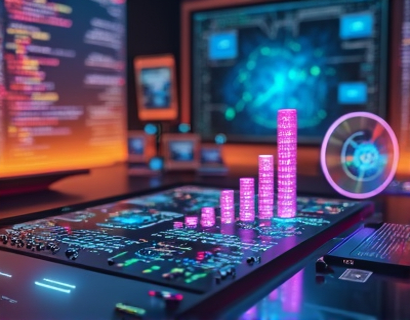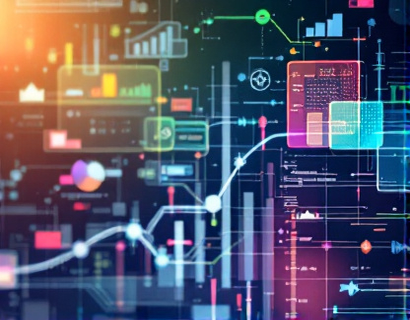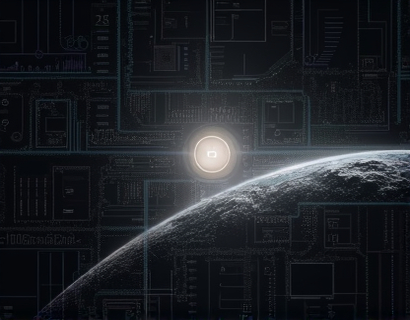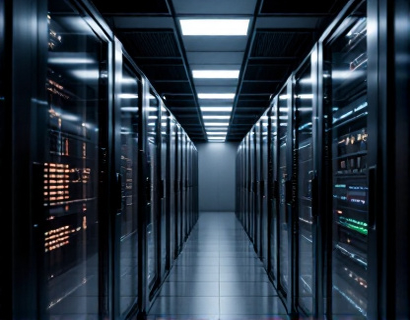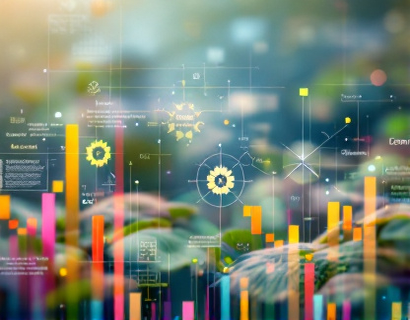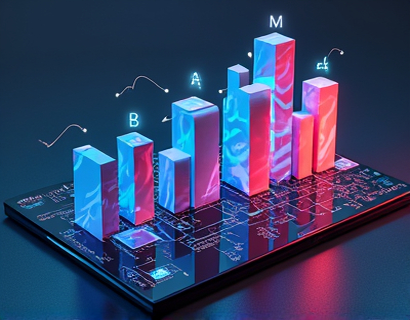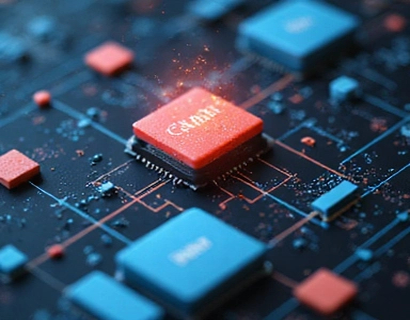Decentralized Productivity Boost: Harnessing AI and Crypto for Next-Gen App Ecosystems
The integration of artificial intelligence (AI) and cryptocurrency into app ecosystems represents a revolutionary shift in how we approach productivity and workflow management. This transformation is not just about adopting new technologies but redefining the very fabric of digital interactions. By merging these two powerful forces, we can unlock a future where applications are not only more efficient and user-friendly but also secure and decentralized. This article delves into the potential of decentralized technology to enhance user experience and redefine workflows, offering insights for tech-savvy innovators and early adopters interested in the intersection of cryptocurrency, AI, and decentralized solutions.
The traditional app ecosystem is centralized, with data and control concentrated in the hands of a few large corporations. This centralization has led to issues such as data breaches, privacy concerns, and limited user control. Decentralized technology, on the other hand, distributes control and data across a network, reducing the risk of single points of failure and enhancing security. When combined with AI, this decentralized approach can create app ecosystems that are not only more secure but also more intelligent and responsive to user needs.
One of the key benefits of decentralized app ecosystems is enhanced user privacy. In a decentralized model, user data is not stored in a central server but is instead distributed across the network. This means that even if one node is compromised, the entire system remains secure. AI can further enhance this by implementing advanced encryption methods and ensuring that data is only accessible to authorized users. For instance, blockchain technology, a cornerstone of decentralized systems, uses cryptographic techniques to secure transactions and data, making it nearly impossible for unauthorized parties to alter or access sensitive information.
Another significant advantage of decentralized app ecosystems is improved data ownership and control. In centralized systems, users often have limited control over their data, with companies dictating how it is used and shared. Decentralized platforms empower users by giving them ownership of their data. Through the use of smart contracts and decentralized identity management, users can decide who has access to their data and under what conditions. AI can optimize this process by analyzing user preferences and behavior to provide personalized data management options, ensuring that users have a seamless and secure experience.
The integration of AI in decentralized app ecosystems also leads to more intelligent and adaptive applications. AI algorithms can analyze vast amounts of data to identify patterns, predict user needs, and automate tasks. In a decentralized environment, these algorithms can operate across multiple nodes, enhancing their capabilities and reducing latency. For example, AI-powered virtual assistants can be deployed on a decentralized network, providing users with real-time assistance without the need for a central server. This not only improves performance but also ensures that the assistant is always up-to-date with the latest information and user preferences.
Decentralized app ecosystems also foster innovation by lowering barriers to entry for developers. Traditional app stores are gatekeepers, often favoring established players and making it difficult for new developers to gain traction. Decentralized platforms remove these barriers by allowing anyone to create and distribute applications directly to users. This democratization of app development leads to a more diverse and vibrant ecosystem, where innovative solutions can emerge and thrive. AI can further enhance this by providing tools and frameworks that simplify the development process, making it accessible to a broader range of developers.
One of the most promising applications of decentralized AI-powered app ecosystems is in the realm of productivity tools. Imagine a work environment where applications are not only intelligent and adaptive but also secure and decentralized. Such an environment can significantly enhance productivity by streamlining workflows and eliminating bottlenecks. For instance, a decentralized project management tool could use AI to predict project timelines, allocate resources efficiently, and automate routine tasks. All data and processes would be secured through blockchain, ensuring that sensitive information remains protected.
Another area where decentralized AI can make a substantial impact is in collaborative workspaces. Traditional collaboration tools often suffer from data silos and communication breakdowns. A decentralized platform can integrate multiple AI-driven tools into a cohesive ecosystem, allowing team members to collaborate seamlessly. AI can facilitate real-time translation, document summarization, and even sentiment analysis to ensure that all team members are on the same page. The decentralized nature of the platform ensures that all data is transparent and accessible, reducing the risk of miscommunication and increasing trust among team members.
The economic incentives provided by cryptocurrency further enhance the appeal of decentralized app ecosystems. In a decentralized model, users can be rewarded for contributing value to the network, such as providing computational power for AI tasks or validating transactions on the blockchain. This creates a self-sustaining ecosystem where users are motivated to participate and contribute, leading to a more robust and resilient network. For developers, this means a new revenue stream and the opportunity to build applications that are truly user-driven and community-supported.
Moreover, the transparency and immutability of blockchain technology ensure that transactions and interactions within the ecosystem are trustworthy and verifiable. This level of transparency can significantly reduce fraud and errors, leading to more reliable and efficient workflows. AI can complement this by analyzing transaction data to identify potential issues and optimize processes in real-time. For example, AI can monitor the performance of decentralized applications and automatically scale resources to handle increased demand, ensuring a smooth user experience.
The future of productivity apps lies in the convergence of AI and decentralized technology. By leveraging the strengths of both, we can create app ecosystems that are secure, efficient, and user-centric. For tech enthusiasts and early adopters, this represents an exciting opportunity to be at the forefront of a technological revolution. As the demand for decentralized and AI-driven solutions grows, the potential for innovation and disruption is immense. Those who embrace this change will be well-positioned to lead the next generation of digital transformation.
In conclusion, the integration of AI and cryptocurrency into app ecosystems marks a significant step towards a more decentralized, secure, and intelligent digital world. By harnessing the power of decentralized technology and AI, we can redefine productivity and workflow management, creating applications that not only enhance user experience but also empower users and developers alike. As we continue to explore and develop these technologies, the possibilities for innovation and growth are limitless.



